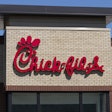U.S. eggs and poultry are among the fastest growing food products in the organic foods sector.
Organic egg sales were $161 million in 2005, up from $140 million in 2004, with an average annual growth rate of 19 percent between 2000 and 2005, according to a report on organic eggs and poultry by the U.S. Department of Agriculture (USDA) Economic Research Service (ERS). Even so, organic egg sales accounted for only one percent of the fresh egg market in 2004, according to an ERS analysis of ACNielsen Homescan data (retail scanner data for 8,533 households).
The organic meat sector is currently one of the fastest growing segments of the organic food industry, and poultry accounts for nearly two-thirds of it. U.S. retail sales of organic poultry were $161 million in 2005, well below one percent of conventional poultry sales. But retail sales of organic poultry have almost quadrupled since 2003, and estimates of annual growth rates range from 23 to 38 percent for the rest of the decade, with annual sales reaching almost $600 million by 2010.
Almost half of organic poultry sales were in natural food stores in 2003, 45 percent in mass market grocery stores, and four percent through direct sales and other distribution channels.
In a recent international survey, about 12 percent of U.S. consumers reported purchasing organic poultry regularly. In fact, organic meat and poultry recently became recognized for the first time as a “gateway” organic food, that is, the first organic products purchased by consumers that can steer them toward purchasing other organic products.
In 2003, consumers purchased 51 percent of organic eggs in mass market channels, 45 percent in natural food stores, and almost three percent direct from the producer or through other channels.
Growth in the specialty egg market is rapid, the report says, and organic eggs are the fastest growth part of this sector. Factors boosting demand for organic eggs include consumer concerns for health, and animal welfare. Although conventional eggs are the second biggest private label, or house brand, item in the supermarket, organic eggs have historically been sold as branded items.
Data for organic eggs in 2003 show that the sector is fairly concentrated, with the top five companies holding approximately 55 percent of the market, and the top two companies holding approximately 33 percent of the market. But for now, “conventional egg companies have not significantly expanded into the organic egg sector,” the report says.
Looking at organic production by states, four states produced 54 percent of all organic eggs in 2005: North Carolina, 15 percent; California, 14 percent; Pennsylvania, 13 percent; and Iowa, 12 percent. In 2000, by contrast, the top-four list consisted of North Carolina, Pennsylvania, California, and Virginia, for a 73 percent share of total U.S. organic egg production.
Looking at the top four states in broiler production in 2005, California had a 34 percent market share; Pennsylvania, 28 percent; Nebraska, 23 percent; and Iowa nine percent. In 2000, California had a 62 percent market share, followed by North Carolina, Oklahoma; and Iowa.











